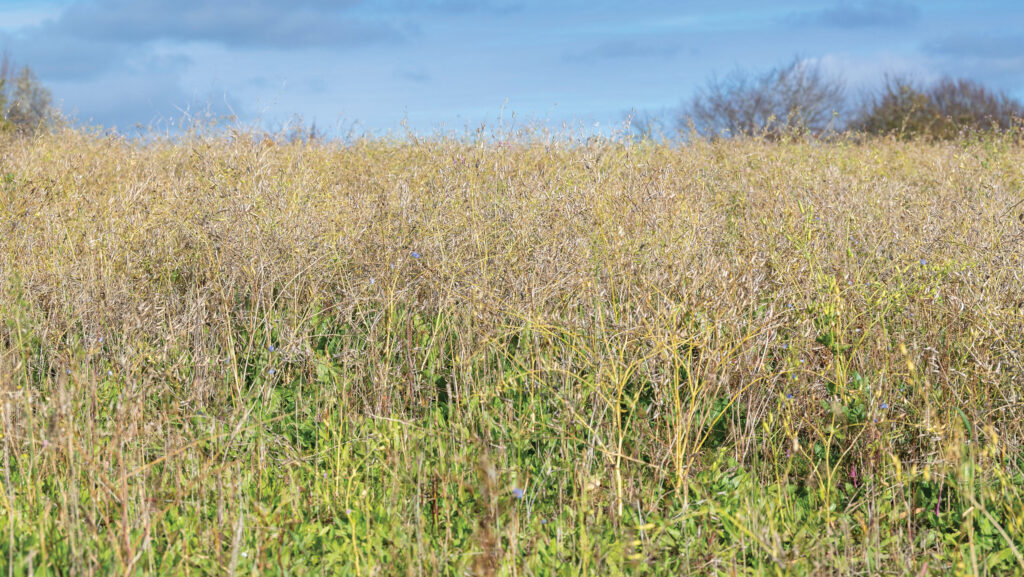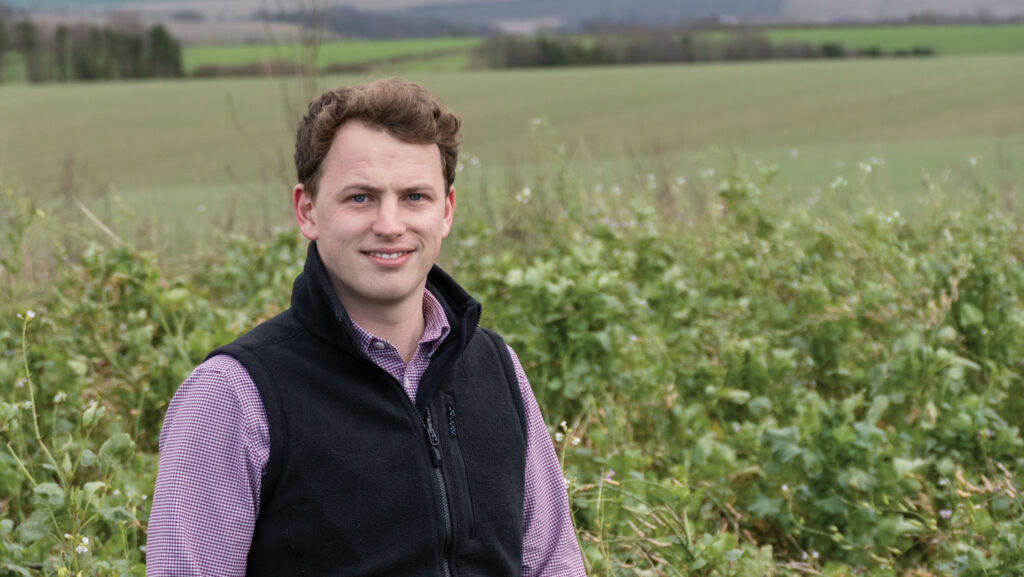Sustainable Farming Incentive: Where next for farmers?
 © Wayne Hutchinson/Alamy Stock Photo
© Wayne Hutchinson/Alamy Stock Photo The sudden closure of the Sustainable Farming Incentive (SFI) to new applications has left the farming industry in England wondering what the future holds for agri-environment schemes.
Defra’s decision, which came into immediate effect on the evening of 11 March, has been widely criticised, with most pointing out it was in breach of the six-week notice period promised to potential applicants before any changes were made.
See also: Land agents offer advice in light of SFI suspension
The shock move means that farmers who had not completed and submitted an SFI application, for any reason, will no longer be able to access the scheme in its most recent form.
Existing agreements will be paid in full, Defra confirms, while eligible applications submitted before 11 March will also be processed. The reason given for its abrupt halting was that the funding had been exhausted.
Despite the SFI being intended for wide uptake to support nature-friendly farming, with a target of getting 70% of farmers in England signed up, the budget had been spent.
Current situation
At the time of closing, there were 37,000 live SFI agreements in place.
In Defra speak, that means 800,000ha of arable land are now farmed without insecticides, 75,000km of hedgerows are being actively managed, and 280,000ha of low-input grassland are being managed more sustainably.
Without the Defra “spin”, this translates differently – around 60% of Basic Payment Scheme (BPS) claimants haven’t yet applied successfully and will be without the means to do so for at least 18 months.
Looking ahead, there is promise of a reformed SFI scheme, with the budget to be confirmed in the Spending Review this summer.
Defra reports it will direct future funding where there is greatest potential to do more for nature and where there’s least ability for farmers to access decent returns.
At this stage, all that it will say is that details of the revised scheme will be announced in summer 2025, but applications won’t be accepted until 2026.
Budget management
Environmental schemes that everyone has the right to apply to need to come with budget management, both at the national level and the individual farm level, points out Geoff Sansome, former head of agriculture at Natural England.
“A fundamental mistake was made with the SFI and it was pointed out many times the money would run out if it was left uncapped,” he says.
Those who changed their farming system to embrace a direction of travel that was required of them are angry, he acknowledges, with the long-term nature of farming having been disregarded by the way the closure was implemented.
“It’s an appalling situation to be in and there’s little doubt that yet another knock to farmer confidence in government schemes will be the result.”
Geoff adds that there was considerable political pressure to get the SFI up and running quickly, as well as kickback against the loss of BPS, so unwise decisions were made to be able to show progress with farmer uptake.
“The introduction of the management fee is a good example of that, with farmers receiving up to £1,000/year to cover the administrative costs of entering the scheme.”
Despite its stop-start history, he believes that the SFI has some well-developed actions, and with the right delivery model it could still work well and meet important environmental objectives.
Individual farm limits
Getting an uptake level of 70% of farmland with a restricted budget means there will be winners and losers, as it would involve the introduction of limits at the individual farm level.
“The starting point has to be agreeing the budget,” says Geoff.
“Then they can do some modelling and work out if a limit of £100/ha across all the land entered is achievable, or if it needs to be a bit higher or a bit lower.”
Done this way, farmers would then have the choice and flexibility around the options they put in place to reach those limits, he explains.
As there are existing SFI agreements that are already over this threshold, those agreement holders would be losers if the decision was taken to amend schemes on their anniversary, rather than when they end, to come within a financial limit.
“Amending existing agreements and reducing payments is a contentious proposal and is only being floated as a way of moving forward,” agrees Geoff.
“But it means that more farmers would be able to access the SFI, at a time when they need it most.”
Interim scheme
The Nature Friendly Farming Network has a different proposal.
It is calling on the government to introduce an interim scheme to assist farmers that aren’t enrolled in the SFI and stabilise their financial position.
A streamlined version of the SFI would help those who can’t afford to wait until the next round of government support materialises, outlines chief executive Martin Lines, who accepts that it wouldn’t be a fully-fledged solution.
“This terrible situation should have been foreseen,” he says.
“Leaving farmers high and dry is unacceptable, especially as some were prevented from accessing the SFI and there have been considerable delays in responding to applications and queries.”
Any new scheme must deliver on the government’s key targets, he stresses, rather than allowing too much of the budget to go on unambitious actions that do little to enhance the environment or improve the farm.
“Farmers are ready and willing to deliver on key priorities, but they need certainty to make plans for managing their land,” adds Martin.
“An interim scheme would only be necessary until a more comprehensive solution is available.”
Transition Farmer: Ed Shuldham

© Kathy Horniblow
The Sustainable Farming Incentive (SFI) is a contract to deliver a service, not a subsidy, points out Transition Farmer Ed Shuldham.
Therefore putting caps or limits on it would affect the farming industry’s ability to do that, he says.
“Unlike BPS, there are costs and work attached to SFI actions,” he says.
“The government’s 30 by 30 target – a commitment to protect 30% of land for nature by 2030 – will be very difficult to achieve without this type of scheme operating well.”
In terms of the SFI, the Wiltshire-based business has been along for the whole ride – starting with the SFI Pilot before taking up the soils standards in SFI22.
“When that turned out to be a false start, the farm secured an SFI23 agreement, followed by another one when the expanded SFI24 offer was available.
“We’ve entered into every round,” reveals Ed.
“Our philosophy is to take the opportunities as they arise, rather than wait for the perfect scheme or timing.”
That approach extends to grant funding too.
He has made successful applications for Farming in Protected Landscapes and Farming Equipment and Technology Fund support.
In addition, they are part of a Landscape Recovery project through their involvement in a cluster group.
Teaming up with a charity to protect rare chalk downland habitat has also resulted in funding from the Species Recovery grant.
“Again, we haven’t waited or sat on our hands. These opportunities have to be jumped on while they’re there.”
The farm’s latest expanded SFI24 agreement only started in December 2024, so Ed is hoping that income is guaranteed for three years.
“When the revised SFI eventually comes along in 2026, we will take a look to see what it offers. Our 2023 agreement will be coming to an end then.”
An existing Higher Tier stewardship scheme and the SFI work well together on the farm, with minimal land taken out of production by the latter.
Every arable field has an environmental feature, with some having stewardship margins on all four sides.
The SFI actions are all based on the growing in-crop area, complementing the farm’s diverse cropping.
Insecticide-free crops and companion planting are now part of the farming system, as are summer cover crops.
Hearing that the government has run out of money for the SFI doesn’t make sense, Ed continues.
“It is supposed to be funding nature recovery work.
“If you limit the money that’s on offer, either geographically by imposing individual farm limits, you hamper our ability to provide the service we have a contract for.”
Private markets are not operating effectively in this space yet, he adds.
“If the government does introduce limits, it needs to support the private markets to get up to speed. Funding nature is essential.”
